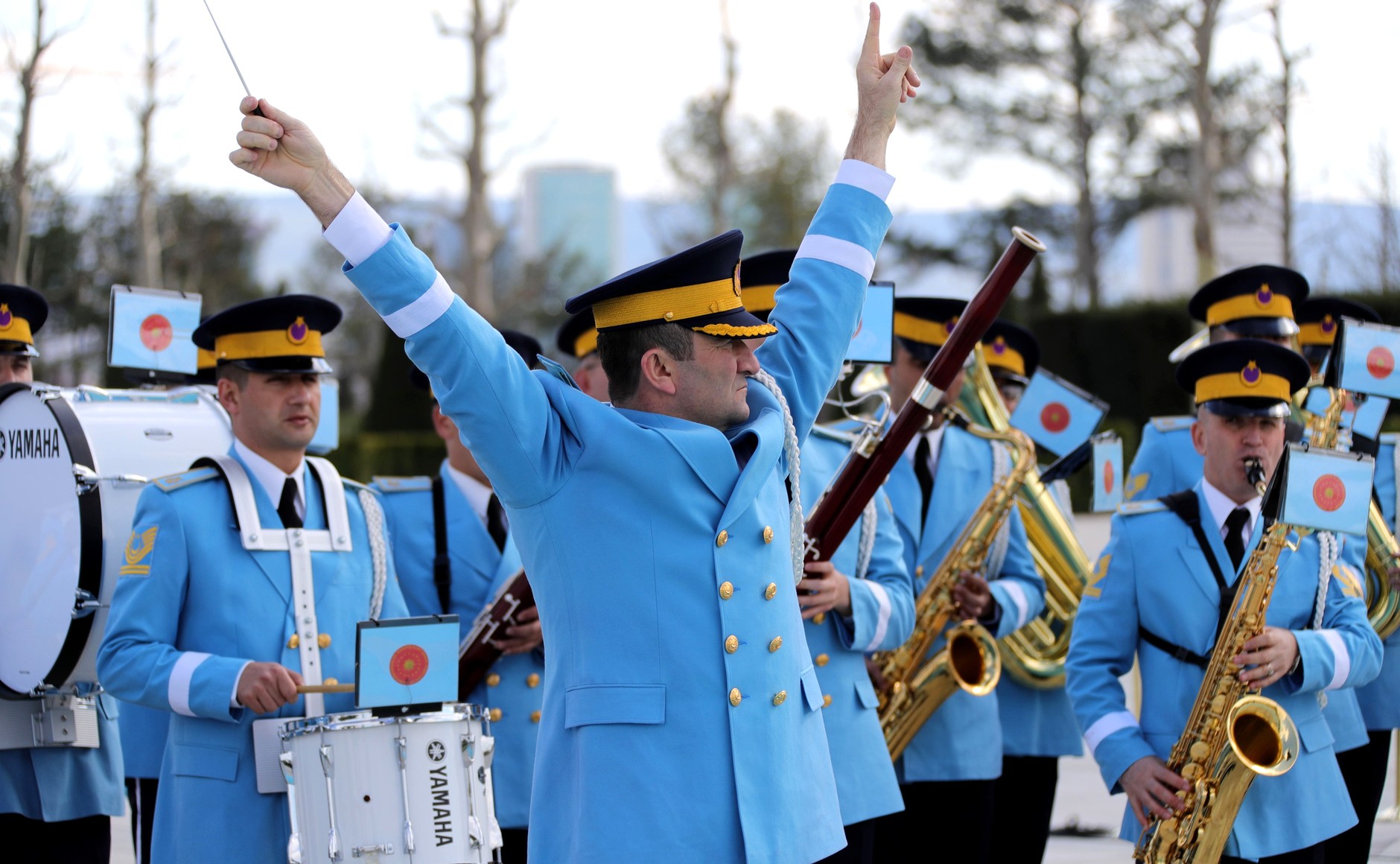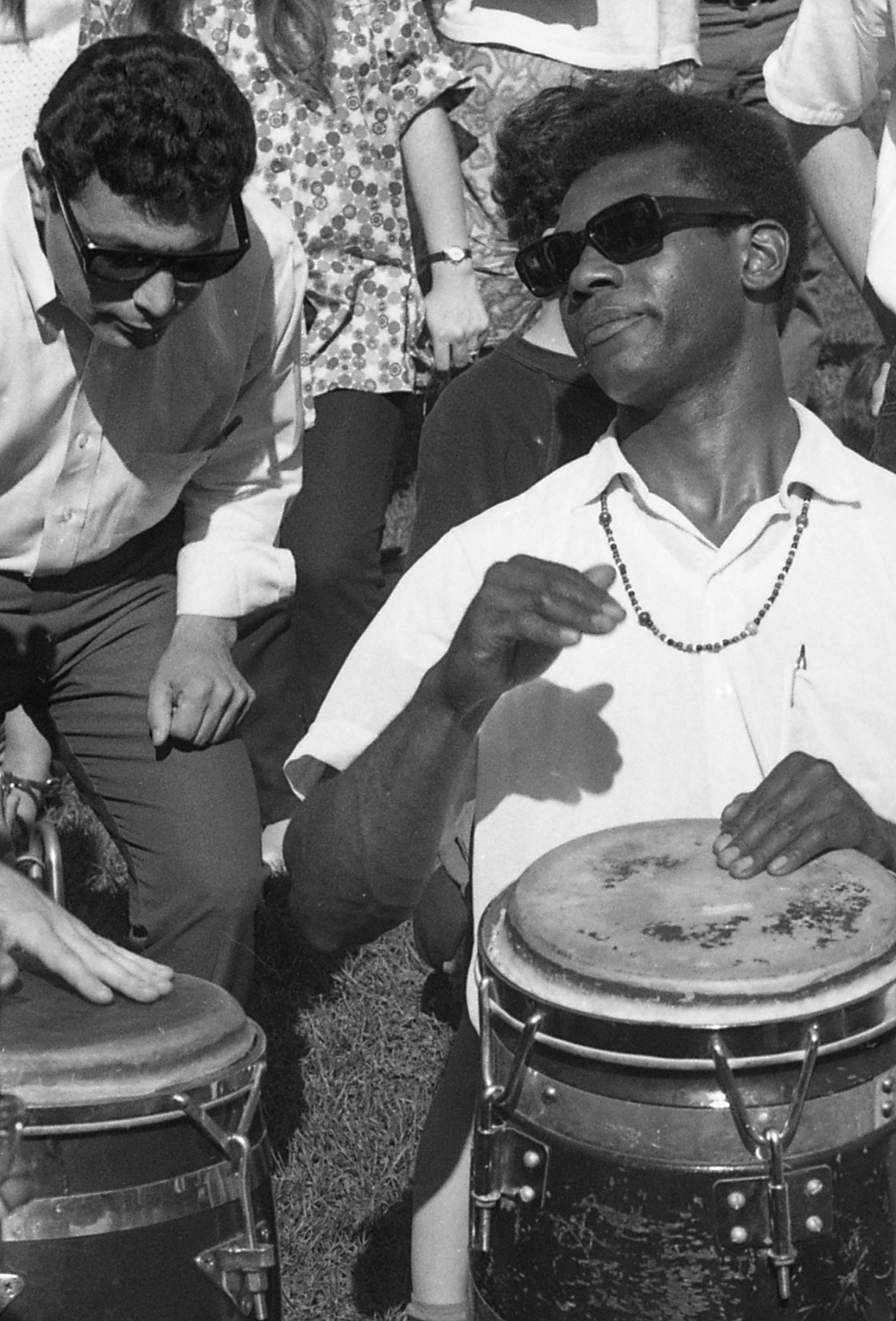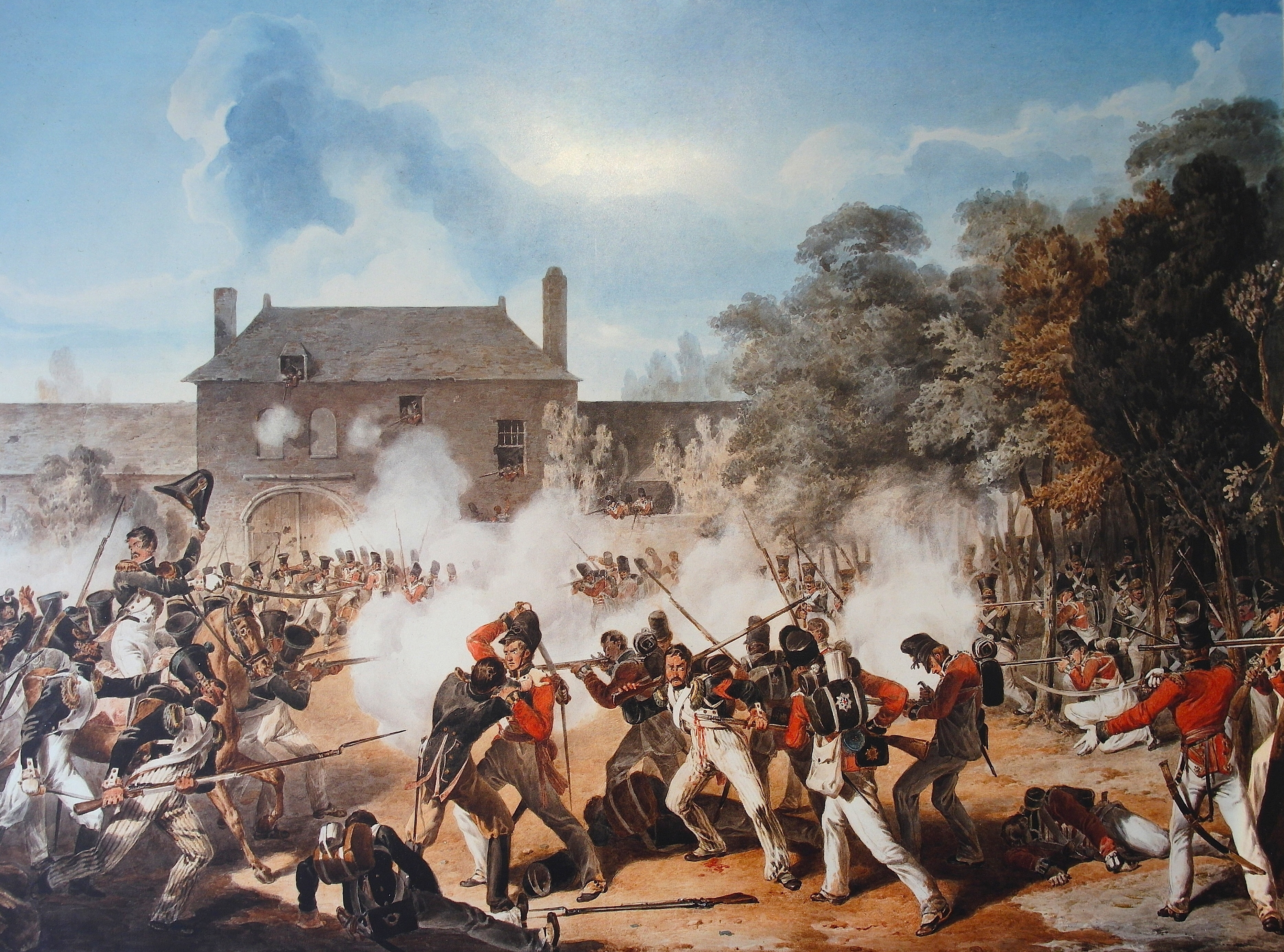|
Charles Godfrey (bandmaster)
Charles Godfrey (November 22, 1790, Kingston-upon-Thames – Decemner 12, 1863, London) was an English bandmaster, drummer, and bassoonist. He began his career as a drummer in the band of the 1st Royal Surrey Militia. He then played in the band of the Coldstream Guards as a bassoonist The bassoon is a woodwind instrument in the double reed family, which plays in the tenor and bass ranges. It is composed of six pieces, and is usually made of wood. It is known for its distinctive tone color, wide range, versatility, and virtuos .... He was appointed director of this band in 1825. He served in that position until 1834 when he was discharged from military duty, but continued to direct the group as a civilian musician. His son Fred Godfrey succeeded him as director of the Coldstream Guards band in 1863. In 1831 Godfrey was appointed musician-in-ordinary to King William IV. He was editor of the military band publication, '' Jullien’s Military Journal''. His other son was the ba ... [...More Info...] [...Related Items...] OR: [Wikipedia] [Google] [Baidu] |
Kingston-upon-Thames
Kingston upon Thames (hyphenated until 1965, colloquially known as Kingston) is a town in the Royal Borough of Kingston upon Thames, southwest London, England. It is situated on the River Thames and southwest of Charing Cross. It is notable as the ancient market town in which Saxon kings were crowned and today is the administrative centre of the Royal Borough. Historically in the county of Surrey, the ancient parish of Kingston became absorbed in the Municipal Borough of Kingston-upon-Thames, reformed in 1835. From 1893 to 2021 it was the location of Surrey County Council, extraterritorially in terms of local government administration since 1965, when Kingston became a part of Greater London. Today, most of the town centre is part of the KT1 postcode area, but some areas north of Kingston railway station are within KT2. The United Kingdom Census 2011 recorded the population of the town (comprising the four wards of Canbury, Grove, Norbiton and Tudor) as 43,013, while the ... [...More Info...] [...Related Items...] OR: [Wikipedia] [Google] [Baidu] |
Bandmaster
A bandmaster is the leader and conductor of a band, usually a concert band, military band, brass band or a marching band. British Armed Forces In the British Army, bandmasters of the Royal Corps of Army Music now hold the rank of staff sergeant, warrant officer class 2 or warrant officer class 1. A commissioned officer who leads a band is known as the director of music. Directors of music are all former bandmasters who have been commissioned. All bandmasters initially joined the Army as musicians and were selected for bandmaster training from non-commissioned rank (usually having reached the rank of at least corporal). However, unlike most NCOs, bandmasters are promoted directly to staff sergeant on completion of their bandmaster training and have not necessarily worked their way through all the intervening ranks. British Army line infantry and cavalry regimental bands were led by bandmasters until the reorganisation of bands and the creation of the Corps of Army Music ... [...More Info...] [...Related Items...] OR: [Wikipedia] [Google] [Baidu] |
Drummer
A drummer is a percussionist who creates music using drum The drum is a member of the percussion group of musical instruments. In the Hornbostel-Sachs classification system, it is a membranophone. Drums consist of at least one membrane, called a drumhead or drum skin, that is stretched over a she ...s. Most contemporary western bands that play Rock music, rock, Pop music, pop, jazz, or R&B music include a drummer for purposes including timekeeping and embellishing the musical timbre. The drummer's equipment includes a drum kit (or "drum set" or "trap set"), which includes various drums, cymbals and an assortment of accessory hardware such as pedals, standing support mechanisms, and drum sticks. Particularly in the traditional music of many countries, drummers use individual drums of various sizes and designs rather than drum kits. Some use only their hands to strike the drums. In larger ensembles, the drummer may be part of a rhythm section with other percussion ... [...More Info...] [...Related Items...] OR: [Wikipedia] [Google] [Baidu] |
Bassoonist
The bassoon is a woodwind instrument in the double reed family, which plays in the tenor and bass ranges. It is composed of six pieces, and is usually made of wood. It is known for its distinctive tone color, wide range, versatility, and virtuosity. It is a non-transposing instrument and typically its music is written in the bass and tenor clefs, and sometimes in the treble. There are two forms of modern bassoon: the Buffet (or French) and Heckel (or German) systems. It is typically played while sitting using a seat strap, but can be played while standing if the player has a harness to hold the instrument. Sound is produced by rolling both lips over the reed and blowing direct air pressure to cause the reed to vibrate. Its fingering system can be quite complex when compared to those of other instruments. Appearing in its modern form in the 19th century, the bassoon figures prominently in orchestral, concert band, and chamber music literature, and is occasionally heard in pop, rock ... [...More Info...] [...Related Items...] OR: [Wikipedia] [Google] [Baidu] |
1st Royal Surrey Militia
The 1st Royal Surrey Militia, later the 3rd Battalion, East Surrey Regiment was an auxiliary regiment raised in Surrey in the Home Counties of England. From its formal creation in 1759 the regiment served in home defence in all of Britain's major wars until 1918, seeing active service in the Second Boer War and supplying reinforcements to the East Surreys during World War I. Background The universal obligation to military service in the Shire levy was long established in England and its legal basis was updated by two Acts of 1557, which placed selected men, the 'Trained Bands', under the command of Lords Lieutenant appointed by the monarch. This is seen as the starting date for the organised county militia in England. The Surrey Trained Bands formed part of the army at Tilbury during the Armada campaign of 1588, and some elements saw active service during the English Civil War. The Militia was re-established in 1661 after the restoration of the monarchy, and was popularly se ... [...More Info...] [...Related Items...] OR: [Wikipedia] [Google] [Baidu] |
Coldstream Guards
The Coldstream Guards is the oldest continuously serving regular regiment in the British Army. As part of the Household Division, one of its principal roles is the protection of the monarchy; due to this, it often participates in state ceremonial occasions. The Regiment has consistently provided formations on deployments around the world and has fought in the majority of the major conflicts in which the British Army has been engaged. The Regiment has been in continuous service and has never been amalgamated. It was formed in 1650 as 'Monck's Regiment of Foot' and was then renamed 'The Lord General's Regiment of Foot Guards' after the restoration in 1660. With Monck's death in 1670 it was again renamed 'The Coldstream Regiment of Foot Guards' after the location in Scotland from which it marched to help restore the monarchy in 1660. Its name was again changed to 'The Coldstream Guards' in 1855 and this is still its present title. Today, the Regiment consists of: Regimental Headq ... [...More Info...] [...Related Items...] OR: [Wikipedia] [Google] [Baidu] |
Fred Godfrey (bandmaster)
Frederick Adolphus Godfrey, better known as Fred Godfrey, (1837, London – August 28, 1882, London) was an English bandmaster and music arranger. He was the son of bandmaster Charles Godfrey, the brother of bandmaster Daniel Godfrey, and the uncle of bandmaster Daniel Eyers Godfrey. He was trained as a musician at the Royal Academy of Music. In 1863 he succeeded his father as bandmaster of the Coldstream Guards; a post he held until his retirement in 1880. He is best remembered for his work as a music arranger, and some of his arrangements have remained in use. Particularly well known is his '' Reminiscences'' which arranged music by Daniel Auber and Giuseppe Verdi Giuseppe Fortunino Francesco Verdi (; 9 or 10 October 1813 – 27 January 1901) was an Italian composer best known for his operas. He was born near Busseto to a provincial family of moderate means, receiving a musical education with the h ... among other composers. References 1837 births 1882 deaths ... [...More Info...] [...Related Items...] OR: [Wikipedia] [Google] [Baidu] |
Oxford University Press
Oxford University Press (OUP) is the university press of the University of Oxford. It is the largest university press in the world, and its printing history dates back to the 1480s. Having been officially granted the legal right to print books by decree in 1586, it is the second oldest university press after Cambridge University Press. It is a department of the University of Oxford and is governed by a group of 15 academics known as the Delegates of the Press, who are appointed by the vice-chancellor of the University of Oxford. The Delegates of the Press are led by the Secretary to the Delegates, who serves as OUP's chief executive and as its major representative on other university bodies. Oxford University Press has had a similar governance structure since the 17th century. The press is located on Walton Street, Oxford, opposite Somerville College, in the inner suburb of Jericho. For the last 500 years, OUP has primarily focused on the publication of pedagogical texts and ... [...More Info...] [...Related Items...] OR: [Wikipedia] [Google] [Baidu] |
William IV
William IV (William Henry; 21 August 1765 – 20 June 1837) was King of the United Kingdom of Great Britain and Ireland and King of Hanover from 26 June 1830 until his death in 1837. The third son of George III, William succeeded his elder brother George IV, becoming the last king and penultimate monarch of Britain's House of Hanover. William served in the Royal Navy in his youth, spending time in North America and the Caribbean, and was later nicknamed the "Sailor King". In 1789, he was created Duke of Clarence and St Andrews. In 1827, he was appointed Britain's first Lord High Admiral since 1709. As his two elder brothers died without leaving legitimate issue, he inherited the throne when he was 64 years old. His reign saw several reforms: the Poor Law was updated, child labour restricted, slavery abolished in nearly all of the British Empire, and the electoral system refashioned by the Reform Acts of 1832. Although William did not engage in politics as m ... [...More Info...] [...Related Items...] OR: [Wikipedia] [Google] [Baidu] |
Daniel Godfrey (bandmaster)
Daniel Godfrey (4 September 1831 – 30 June 1903) was a bandmaster, composer and arranger of compositions for military bands. He was for many years bandmaster of the Grenadier Guards. Life He was born in Westminster in 1831, eldest of four sons of Charles Godfrey, bandmaster of the Coldstream Guards for fifty years. His eldest brother, George William Godfrey, was well known as a playwright. Daniel Godfrey was educated at the Royal Academy of Music, where he subsequently became professor of military music and was elected a fellow. In his early days he was a flute player in the orchestra of Louis-Antoine Jullien and at the Royal Italian Opera. In 1856, on the recommendation of Sir Michael Costa, he was, through the influence of the Prince Consort Albert, appointed bandmaster of the Grenadier Guards. One of his first duties was to play into London the brigade of guards returning from the Crimean War. In 1863 he composed his "Guards" waltz for the ball given by the officers of the ... [...More Info...] [...Related Items...] OR: [Wikipedia] [Google] [Baidu] |
Daniel Eyers Godfrey
Sir Daniel Eyers Godfrey (20 June 1868 – 20 July 1939) was a British music conductor and member of a musical dynasty that included his father Daniel Godfrey (1831–1903), his uncle Fred Godfrey, ahd his grandfather Charles Godfrey. His son, also Dan Godfrey, was also a musician, station manager at BBC Manchester in the 1920s, and the first full-time conductor of the BBC Wireless Orchestra (1924–1926). He was born in London, a member of a distinguished family of English bandmasters, and son of the bandmaster of the Grenadier Guards - (to whom the waltz ''Les Grenadiers'', Op. 207, by Émile Waldteufel was dedicated.) He founded the Bournemouth Municipal Orchestra in 1893 and remained its leading conductor for 41 years, until 1934. Although he was contracted by the Bournemouth Corporation to conduct a seasonal band of 30 musicians, his ambition was to build a permanent symphony orchestra in the town. Godfrey gave the first performance of the reconstruction of V ... [...More Info...] [...Related Items...] OR: [Wikipedia] [Google] [Baidu] |




.jpg)
